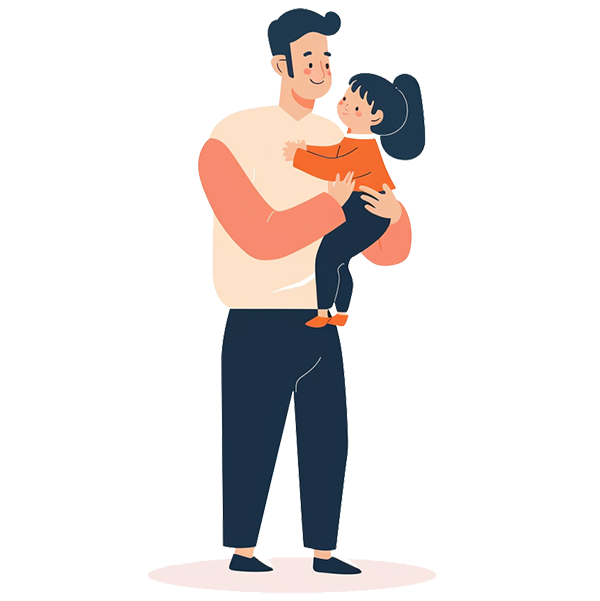NCFE CACHE Level 2 Diploma Introducing Caring for Children and Young People v2

Subject Area: Childcare
62 Lessons Available
Understand how personal experiences, values and beliefs impact on the role of the Early Years Practitioner
12 sections.
Lesson
Understand hygienic practice in preparing formula feeds
11 sections.
Lesson
Understand the physical care needs of children and be able to support children in personal physical care routines
14 sections.
Lesson
Know how to develop the skills and knowledge for a chosen job role
14 sections.
Lesson
Know how to research a vocational area
13 sections.
Lesson
Be able to use observation methods
10 sections.
Lesson
Understand the role of observation when working with children
12 sections.
Lesson
Be able to support the additional needs of children and be able to critically evaluate the provision for children with additional needs in own setting
17 sections.
Lesson
Understand the role of early intervention in partnership working
16 sections.
Lesson
Understand the principles of inclusive practice
20 sections.
Lesson
Understand hygienic practice in relation to control of infection and be able to use hygienic practice to minimise the spread of infection
12 sections.
Lesson
Understand biological, environmental and developmental factors which may result in children needing additional support
22 sections.
Lesson
Understand the needs of children during transition
11 sections.
Lesson
Understand influences on children’s development
15 sections.
Lesson
Understand the stages of child development from birth to 7 years
12 sections.
Lesson
Know that children have rights
13 sections.
Lesson
Understand ways to respect and value children
15 sections.
Lesson
Know how to respect and value children as individuals
16 sections.
Lesson
Know how to provide safe stimulating activities for a young baby
15 sections.
Lesson
Know how to recognise and respond to a young baby who is unwell
12 sections.
Lesson
Understand approaches to planning when working with children from birth to 7 years and understand how to plan to meet the needs of children
14 sections.
Lesson
Be able to work in partnership
16 sections.
Lesson
Be able to plan to meet the individual stages of babies and young children
24 sections.
Lesson
Understand best practice for meeting the individual needs of young children
18 sections.
Lesson
Understand the impact of transition
21 sections.
Lesson
Understand how children learn and develop in the early years
22 sections.
Lesson
Understand statutory guidance in relation to the care and education of children with Special Educational Needs and Disabilities (SEND)
19 sections.
Lesson
Be able to create an enabling play environment which meets the age, stage and needs of children
18 sections.
Lesson
Understand how the early years practitioner supports children’s behaviour and socialisation within play environments and be able to support children’s behaviour and socialisation within play environments
15 sections.
Lesson
Understand the play environment.
11 sections.
Lesson
Know how to access support which may be required as parent(s) of a young baby
13 sections.
Lesson
Be able to reflect on own role in relation to managing children’s behaviour in own setting
12 sections.
Lesson
Be able to respond to inappropriate behaviour
9 sections.
Lesson
Be able to support positive behaviour
12 sections.
Lesson
Understand policies and procedures relating to children’s positive behaviour
13 sections.
Lesson
Understand childhood immunisation
12 sections.
Lesson
Understand rest and sleep needs of children
15 sections.
Lesson
Importance of play for early learning
25 sections.
Lesson
The value of play to young children
19 sections.
Lesson
Use food and nutrition information to plan a healthy diet
14 sections.
Lesson
Introductory awareness of sensory loss
19 sections.
Lesson
Know how to respond to evidence or concerns that a child or young person has been abused, harmed or bullied
24 sections.
Lesson
Know what to do when children or young people are ill or injured, including emergency procedures.
23 sections.
Lesson
Know about the legislation, guidelines, policies and procedures for safeguarding the welfare of children and young people, including e-safety.
30 sections.
Lesson
Children’s play and leisure activities in the community
13 sections.
Lesson
Know age-appropriate toys and activities for young children from birth to 5 years 11 months
13 sections.
Lesson
Understand the responsibilities of parent(s) when caring for a young baby
15 sections.
Lesson
Know about sexual health in relation to a healthy lifestyle
13 sections.
Lesson
Understand how alcohol and illegal use of drugs affect a healthy lifestyle of the user and the family
18 sections.
Lesson
Understand the responsibilities of parents with regard to smoking and the health of the family
14 sections.
Lesson
Understand the importance of family lifestyles which support a child’s or children’s development
15 sections.
Lesson
Know the responsibilities of parents in relation to providing an environment where a child or children can thrive
16 sections.
Lesson
Understand the rights of parents in relation to the welfare and upbringing of own children and understand parental responsibilities in relation to own children
15 sections.
Lesson
Know how to prepare a young child for sleep
15 sections.
Lesson
Sharing learning experiences with children
17 sections.
Lesson
Understand responsibilities in relation to babysitting
10 sections.
Lesson
Understand the role of control measures in fire safety and accident preventions.
14 sections.
Lesson
Know how to assess risks in a babysitting environment
15 sections.
Lesson
Understand risk assessment and its role in supporting the babysitter
11 sections.
Lesson
Understand health and safety when providing craft activities for young children
15 sections.
Lesson
Understand the benefits of craft activities for young children.
16 sections.
Lesson
Young children’s development
23 sections.
Lesson
